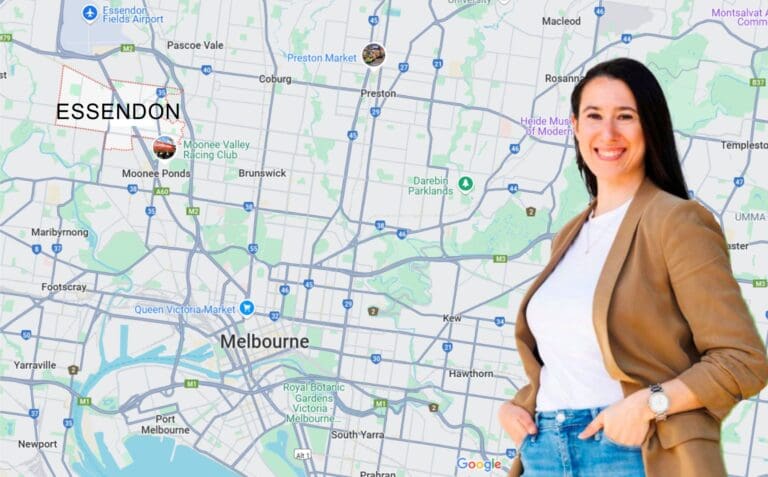Six Key Steps to Choose the Best Conveyancer for First-Time Buyers
In our newest episode of the First Home Podcast, we are decoding the puzzle of how to choose the best conveyancer. A conveyancer is a licensed professional who is trained, qualified, and responsible for handling all the legal aspects of a property transaction to ensure a smooth transfer of property from one person to another. There are six key factors to consider when you’re selecting the best conveyancer for your property purchase.
Key Takeaways on How to Find the Best Conveyancer
- Qualifications and Credentials: Always confirm your conveyancer is licensed, accredited, and adheres to professional standards.
- Experience: Choose a conveyancer with proven expertise in property transactions similar to yours.
- Transparency with Fees: Insist on a clear, upfront breakdown of all costs to avoid hidden charges.
- Accessibility and Communication: Prioritize a conveyancer who is responsive and keeps you informed throughout the process.
- Local Knowledge: Opt for someone familiar with state-specific regulations and regional property nuances.
- Recommendations and Reviews: Check testimonials and online reviews to ensure reliability and service quality.

1: Qualifications and Credentials
The first consideration is qualifications and credentials. The chosen conveyancer must be qualified and licensed to do the job. You don’t want to be speaking to someone who’s from an offshore country or an office without the necessary qualifications or doesn’t work with conveyancers who are qualified and licensed to assist you.
Conveyancers should be licensed. They should be associated with different legal bodies like the Law Institute of Victoria, especially if they’re a lawyer conveyancer. Also, they should be members of the Australian Institute of Conveyances. You want to make sure that they’re also registered with the Legal Services Board.

You should check if a principal of the firm has a practising certificate and if the conveyancers that are assisting them are necessarily licensed. Accreditations guarantee that the professional adheres to a very strict ethical and professional standard.
2: Experience
The second thing you need to consider is experience. As a first-time home buyer, purchasing a property will be the biggest financial decision you’ll ever make. A conveyancer’s experience is an absolute key factor in the legal field.
An experienced conveyancer can handle potential issues, especially complex cases, with great expertise and efficiency. However, if something unexpected pops up, an inexperienced conveyancer may not be able to deal with it, let alone know when to outsource.
Consider the number of years the conveyancer has been in the field and inquire about their specific experience with transactions like yours. Find out if they have dealt with purchases only or if they are only used to sales affairs.
If your situation is unique, you should check if they’ve already dealt with similar ones. Ask them to explain how they’ve dealt with that. You don’t have to go into super depth, but you want to get enough of a feel.
3: Transparency with Fees
The third consideration conveyancers need to be absolutely transparent about is their fees. We are very transparent, always upfront, telling clients the packaged fee for everything we must do until settlement. Before committing to hiring, understand their fee structure. Be aware that many conveyancers will price their fee by saying, “This is a professional fee, and this is our disbursement.”
Many people turn around and go, asking themselves what a disbursement is. They don’t know what it means. A disbursement is an out-of-pocket expense that the conveyance incurs to represent you. For example, it may involve ordering information from different authorities to check for a debt on the land or similar data.
Many property conveyances may not include disbursements as part of their fixed fee, or they put it in the fine print, and then you get bill shock later. That is why you must understand their fee structure and really read the quote that comes through to you to properly understand what you are being priced for.
We’ll provide a transparent breakdown of all the costs involved in your transaction. Professional fees, disbursement costs, search fees, GST (goods and services tax), and anything in terms of a cost that’s associated with the transaction to do with conveyancing will be disclosed to you.
Be Wary of Hidden Charges
Be wary of hidden charges when getting quotes, and ask for a complete fee upfront to avoid unpleasant surprises later in the process. Unfortunately, this happens in the industry because conveyances are not transparent enough about their prices.
And the reason why they’re not transparent enough is because they want to lure you with their cheap fees. When you’re a first-time buyer, you should be engaging someone with excellent expertise, irrespective of price. The price should be reasonable, but you shouldn’t necessarily go for the absolute cheapest quote or a quote that has hidden charges.
4: Accessibility and Communication
The fourth consideration is accessibility and communication. This is the cornerstone of what makes a good, smooth conveyancing experience for you. Effective, meaningful, clear, and simple communication is the cornerstone of a successful property transaction.
Choose a conveyancer who is easily accessible and responsive to your queries. If you call a conveyancing company and they don’t respond to your inquiry on the same day, it is a red flag. Even if you call them to ask for a quote and no one answers for days, be aware of them.
An unresponsive conveyancer will be problematic for you in the long run because if something urgent comes up later that a conveyancer needs to address and advise you about, you will want to reach them over the phone.

When you are choosing the best conveyancer, inquire about:
- what are their preferred communication methods,
- what communication methods do they have available to you, and
- if they provide regular updates on the progress of your transaction.
Make that expectation clear upfront so they understand your needs and expectations.
A proactive and communicative conveyancer helps alleviate the stress and uncertainty that are always present in the conveyancing process. This is especially true for first-time home buyers who are facing a foreign process that is already stressful enough.
5: Local Knowledge
The fifth factor when choosing a conveyancer is local knowledge. Opting for a conveyancer with local expertise can be advantageous to you. It doesn’t necessarily have to be specific to your locality, but choose the conveyancer based in your state and understand how to do conveyancing in your state. Local knowledge is very important for navigating regional specifics such as:
- Regulations particular to regional properties versus suburban properties
- Issues affecting the locality that the conveyancer might know about
- Local nuances that might arise during the transaction.
You want a conveyancer that:
- has the local knowledge of your state
- is familiar with it
- can provide a lot of valuable insights
- help you make informed decisions along the way.
6: Recommendations and Reviews
The sixth consideration when choosing conveyancing is recommendations and reviews. You might think someone sounds good over the phone, but then you look at the Google reviews. There might be lots of one-star reviews against those conveyancers because they’re not doing a great job. They’re all talk and no action. Word of mouth is of the utmost importance.
Word of mouth is a powerful indicator of a conveyancer’s reliability. Check Google reviews, ask around, and seek recommendations from friends, family, and colleagues who’ve recently engaged in property transactions. Trustpilot and Facebook are also places where you should check for reviews.
One thing we do on our website is post testimonials for people to see. I’m talking about video testimonials as proof in the pudding from clients who have experienced firsthand how well we deliver our service, how we got them from A to B, and how we made them feel after using our service.
Check testimonials to gauge the satisfaction of previous clients. A conveyancer’s positive track record is a strong indicator of trustworthiness. Listen now and avoid possible pitfalls.
Conclusion
To summarize, the key considerations when choosing the right conveyancer are:
- qualifications
- experience
- transparency about fees
- accessibility and responsiveness
- knowledge in your state
- reputation and reviews.
If you explore all six considerations, you’ll make a truly informed choice. Take the time to research and select a conveyancer that aligns with who you are and that you feel they understand you and your needs. You’re welcome to contact us at any time. Our number is 0388328032. Give us a buzz if you’ve got any questions about buying a property.
Get your quote today.
Relax knowing our experts are handling your property conveyancing.









